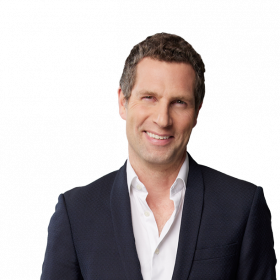Like most other doctors, I have noticed that my patients are getting bigger. Don’t get me wrong, many of us doctors are getting bigger too. We don’t always follow our own advice ‘Do as I say, not as I do’ …right?
I read an article in the Guardian this month called ‘Why not take advice from a fat GP? They’re only human’. The piece quoted a new study from the Royal Society for Public Health suggesting that fewer than one in 10 people would heed advice about diet and exercise from a fat GP. There are plenty of fat GPs out there. These are people who are fully aware of the negative health consequences of being overweight. It just goes to show how difficult it is to change a behavior - when those who should know better struggle.
In a similar vein I read another interesting piece in the publication written by Dr Ann Robinson, a GP, entitled ‘It may be awkward, but GPs owe it to obese patients to give weight loss advice’.
For me, telling people they are overweight, obese or even morbidly obese is akin to breaking bad news. I don’t take any pleasure it in. I don’t like to upset the person who is sitting in front of me. The patient who is overweight might already feel ashamed and depressed.
In fact, they may be overweight because they’ve been putting everyone else first in their family and not looking after themselves. They may be recently bereaved and comfort eating. They may be under enormous strain working long hours in a sedentary job to provide for their family. You never know where someone is coming from.
As a GP I analyse people every day. I look at their body language, scan their eyes for emotion and try to get a sense of whether someone is open to a conversation about any weight issues.
When I bring up the topic of weight, I try to be as sensitive as possible. The patient generally didn’t come into the surgery to be lectured and I’ve usually caught them off-guard.
I might say something like, ‘What about your weight? Do you think it’s affecting your health?’ I quickly get a sense as to whether my patient is open to talking about it. If the response is ‘Yes doctor, I hit the tins of roses over Christmas’ then I know we’re going to make some process. But if the response is ‘I barely eat anything’ - then I know denial may be a factor.
When I was starting out as a doctor and when I was training to be a GP, I often shied away from mentioning a patient’s weight. I was afraid I would offend them. However I’ve seen too many patients suffer with diseases like diabetes type 2, heart failure, cancer, stroke and heart attacks because of their weight. I’ve also seen too many patients die prematurely for the same reason. There is no point in saying ‘You’re overweight, you’ll be fine’. The reality is there’s a good chance they won’t be fine.
I agree with Dr Ann Robinson that GPs need to initiate the conversation about obesity in the consultation room. Once we have initiated it, we need to help the patient to form a plan to succeed in losing weight. We also need to be there for support and encouragement in case they fall off the wagon.









